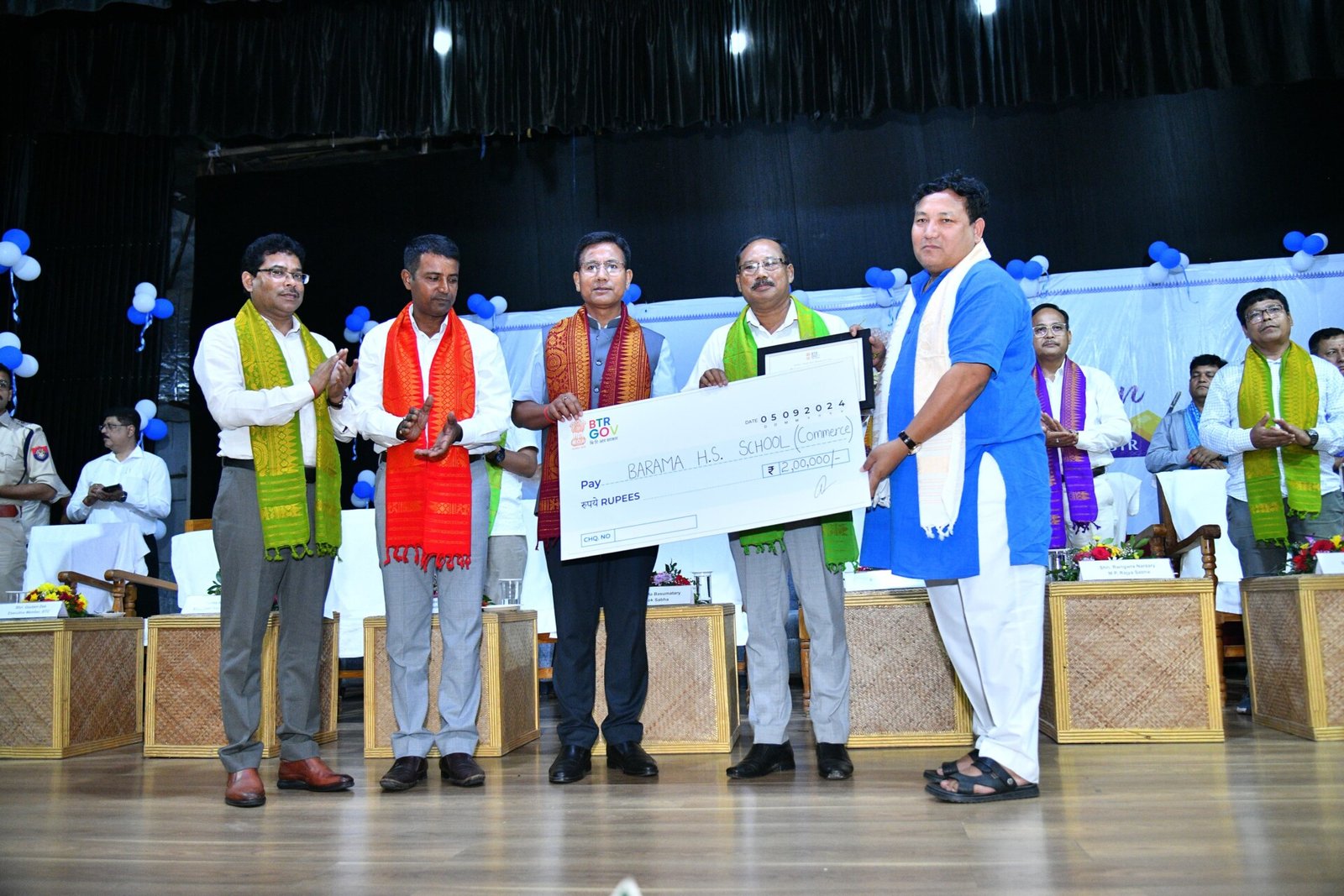GUWAHATI, Sept 2: The Assam government’s ongoing drive to demolish madrassas for their connection to alleged “jihadi activities” has drawn sharp criticism from the Opposition, which has termed the exercise as “totally illegal” and targeted at “one particular community”.
Three madrassas have been demolished by the BJP government within the last one month in different parts of the state after arresting their teachers, who were found to be allegedly involved in “jihadi” activities.
However, on each occasion the official reason for bringing down the structures are related to faulty construction or violation of land norms instead of any link with jihadi activities.
It is only the political leaders from the ruling dispensation who usually give statements in the media that the madrassas have been demolished for allegedly carrying out jihadi activities from their premises.
The administration bulldozed madrassas at Moirabari in Morigaon district on August 4, at Dhakaliapara in Barpeta on August 29 and at Jogighopa in Bongaigaon on August 31.
“The Moirabari madrassa was demolished after a notice was sent to it saying that the building was small and the electricity connection was illegal. The one at Dhakaliapara one was demolished as it was on government land,” All Assam Tanzim Madaris Qawmiya secretary Abdul Kadir told PTI.
The two-storeyed residential madrassa at Jogighopa was razed to the ground for violating disaster norms and the authorities asked the boarders to vacate the premises at 10 pm the previous night, he claimed.
“We have been cooperating with the law enforcement agencies if someone is found doing something wrong. But that does not mean that the entire institution is at fault. What is the point in demolishing an educational centre?” asked Kadir.
From April 1 last year, 610 state-run madrassas in Assam were converted into upper primary, high and higher secondary schools with no change of status, pay, allowances and service conditions for the teaching and non-teaching staff.
Following it, the State Madrassa Education Board, Assam was dissolved and the last Assam High Madrassa examination by the Board of Secondary Education, Assam (SEBA) for Class 10 students took place in 2022.
At present, there are about 1,000 private madrassas, which are run according to the guidelines and syllabus of the All Assam Tanzim Madaris Qawmiya (AATMQ).
AATMQ offers general courses till class eight and theology thereafter. From this year those wishing to study general courses for classes 9 and 10 in madrassas will be able to appear for the exams under an open schooling system with its support.
Meanwhile, a senior official of the SEBA said that about 10 private madrassas have approached it for converting those into general schools, which was done after following the due process.
Opposition senior Congress leader Rakibul Hussain hit out at the Himanta Biswa Sarma government for the demolitions, “It is unconstitutional to destroy the madrassas. The chief minister said that the suspected jihadis entered Assam or started their activities within the last three year. If so, then only the BJP has to be blamed as they have been in power since 2016.”
He also alleged that Sarma is making contradictory statements as he had praised the madrassas as centres of spiritualism during his days in the Congress, but is now blaming them for anti-social activities.
Opposition All India United Democratic Front (AIUDF) said that the Assam government is “totally wrong” in bulldozing the educational centres on the pretext of curbing jihadi activities.
“If there were something wrong, then rectify those. After all these madrassas are imparting education. Demolishing the madrassas is an expression of hatred against one particular community,” AIUDF MLA Ashraful Hussain said.
He also said that Assam state Jamiat Ulama-e-Hind, headed by AIUDF chief Badruddin Ajmal, and AATMQ are considering approaching the court against the demolition of the madrassas.
CPI (M) state secretary Suprakash Talukdar said the party is totally against the demolition of madrassas as arresting a suspect is not the final step of the justice delivery system.
“The government is breaking all laws. Who is responsible for demolishing a centre of education? Who will pay for its costs? These are usually constructed with public donations,” he said.
“The government has become more intolerant. We have also seen a lot of cases against the alleged jihadi elements. But what is the fate of those cases? Were those accused convicted?” he asked.
More than 40 people with suspected links to jihadi elements, including Bangladeshi nationals, have been arrested in the state since March this year. (PTI)












